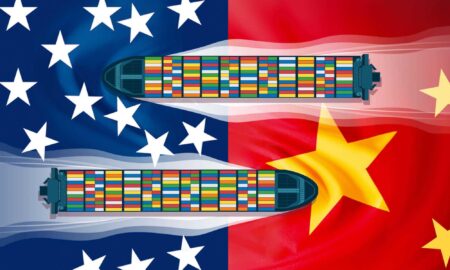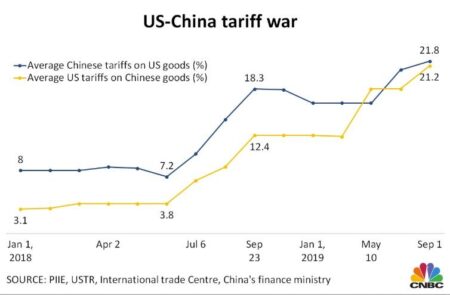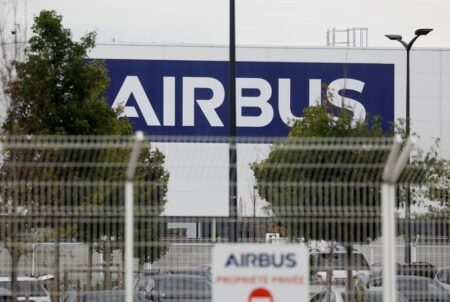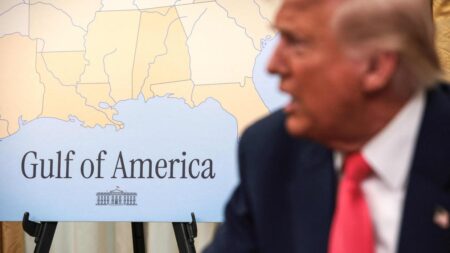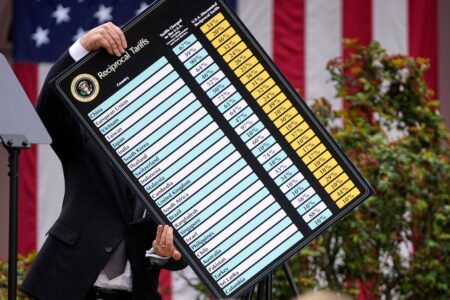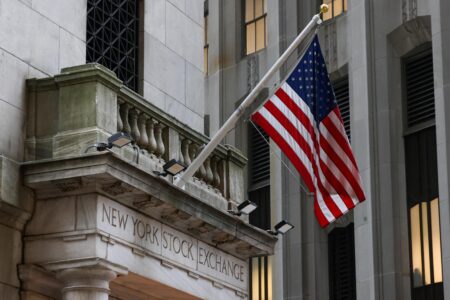Tesla, GM, and Rivian may face significant challenges following China’s export ban on critical minerals essential for electric vehicle production. With supply chains disrupted, these automakers could struggle to maintain production levels and meet growing demand.
Browsing: supply chain
A recent analysis by CNBC reveals that producing a “Made in the USA” iPhone could raise its price significantly. Estimates suggest costs could jump by over $200 per device, reflecting higher labor and manufacturing expenses domestically.
Apple is poised to increase its iPhone production in India, as reported by the Wall Street Journal. This strategic move aims to mitigate potential tariffs and bolster the company’s supply chain resilience amid global trade tensions.
Germany’s Friedrich Merz has warned that proposed tariffs by former President Trump could ignite a financial crisis, jeopardizing global trade stability. He emphasized the need for diplomatic solutions to avoid escalation and protect economic interests.
The ongoing US trade war may lead to a significant shift in global trade dynamics, as experts suggest Chinese goods could increasingly find their way into European markets. This trend could reshape supply chains and impact economies on both sides of the Atlantic.
Australian miners are poised to benefit from China’s new restrictions on rare earth exports. As Beijing tightens its grip on this strategic resource, Australian firms are expected to fill the supply gap, bolstering their market position and boosting revenues.
Tesla has halted new orders for two imported, US-made models in China, as reported by Reuters. This move reflects ongoing challenges in the Chinese market, where competition and regulatory pressures continue to intensify for the electric vehicle manufacturer.
As the U.S.-China tariff war intensifies, Canadian consumers may face rising online shopping prices. Experts warn that increased tariffs on Chinese goods could lead to higher costs for retailers, which might be passed on to Canadian shoppers.
In response to escalating trade tensions, China’s leading retail giants have committed to supporting local exporters in shifting their focus to domestic markets. This initiative aims to bolster the economy and mitigate the impact of ongoing trade disputes.
Apple has reportedly airlifted over a million iPhones from India to the U.S. to circumvent tariffs. This strategic move highlights the tech giant’s efforts to maintain competitive pricing amid global trade tensions and optimize its supply chain.
As the US-China tariff war escalates, iPhones, Shein apparel, and toys emerge as top-traded items facing potential price hikes. Analysts warn that increased tariffs could burden consumers, reshaping spending habits and impacting the retail landscape.
In response to escalating tariffs imposed by the Trump administration, Apple is shifting its production focus to India. This strategic move aims to mitigate supply chain disruptions and reduce reliance on China, demonstrating the company’s adaptability in a volatile trade landscape.
Canada-made automobiles are set to experience significant price increases in the U.S. market, attributed to recently imposed tariffs. Analysts warn that these higher costs could impact sales and competitiveness, raising concerns for Canadian manufacturers.
In a bid to circumvent Trump-era tariffs, Apple orchestrated the shipment of over 1 million iPhones from India using six cargo planes. The move included a coordinated six-hour ‚Äúgreen corridor‚ÄĚ to streamline logistics and expedite delivery.
GF Piping Systems has announced the expansion of its Valve Automation Center in Italy, enhancing its capabilities in manufacturing and servicing valve automation solutions. This strategic move aims to meet growing demand while strengthening its position in the market.
India’s Mahindra Aerostructures has secured a significant contract from Airbus Helicopters to supply fuselages for the H130 model. This partnership marks a key development in the aerospace sector, enhancing local production capabilities and export potential.
In a recent escalation of trade tensions, Trump’s proposed tariffs on Chinese goods are set to significantly impact ‘Main Street’ U.S. businesses that rely on Amazon. Experts warn that increased costs could crush small retailers struggling to compete.
In the wake of escalating trade tensions, former President Trump must remember the core issues that drove his election: American voters prioritize economic stability and affordable prices. A trade war could jeopardize those gains, alienating the very supporters he needs.
In a bold move, former President Donald Trump has threatened to impose an additional 50% tariff on Chinese imports, potentially driving total tariffs beyond the 100% mark. This escalation raises concerns about the impact on U.S.-China trade relations and global markets.
China and the U.S. are witnessing a surge in petrochemical trade, fostering closer ties amid an evolving global market. However, escalating tensions from the ongoing trade war could jeopardize these developments, casting uncertainty on future cooperation.




